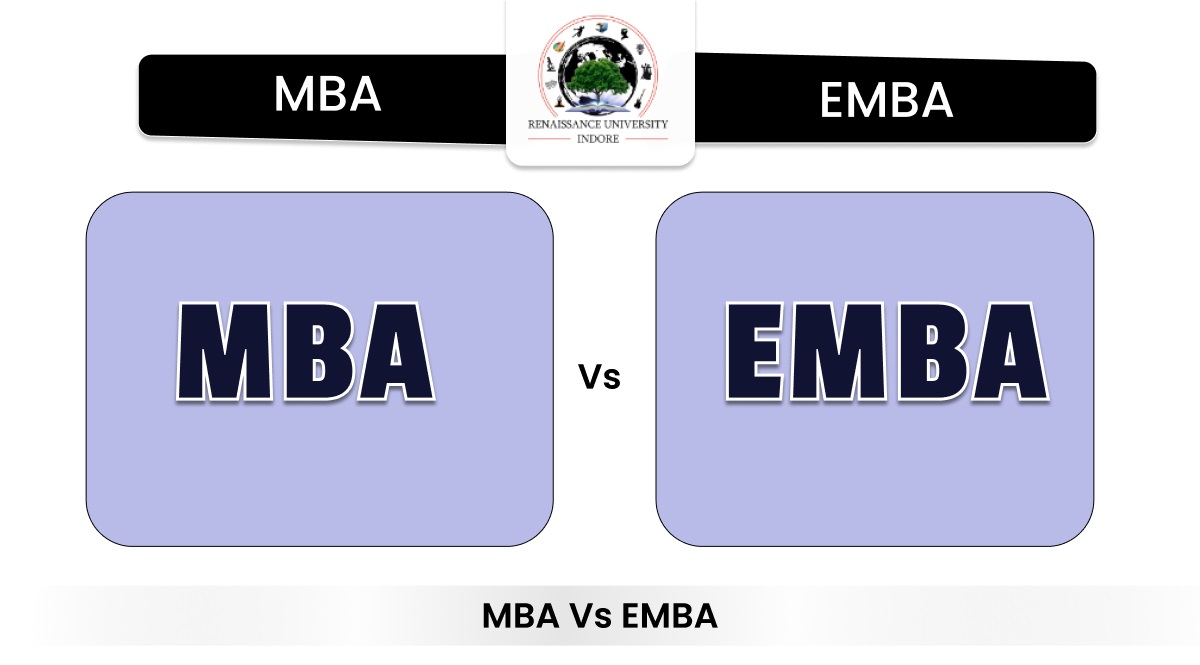Many career options are available nowadays, and several educated people are competing for the same jobs! Choosing the ideal postgraduate school programme to enroll in may be challenging, with so many career options accessible.
Studying an MBA degree is a wise decision if you’re interested in a job in business or management since it will provide you with the knowledge, values, and skills you need to fit in with the business world.
Benefits of an MBA Course for your career?
A Master of Business Administration (MBA) can be a beneficial degree to earn because it improves knowledge and skills in the financial field. If you want to get an MBA, the program’s difficulty and cost, not to mention how difficult it is to get accepted, can first put you off. Since there are so many possibilities for online MBA programmes today, you can keep working while you study and don’t have to stop living your life to earn your degree.
Do you fit the profile for an MBA degree?
If you’re wondering if you’d be a good candidate for this course, you should ask yourself some questions. Do you have the temperament to handle a leadership position with ease? Are you comfortable taking on a lot of responsibility for the company? Do you like taking charge of a team? If the responses are yes, you are in good shape.
Career options for MBA graduates
MBA graduates pursuing degree from Top MBA College have various career options, including analyst positions, financial responsibilities, and management consulting. In addition to these beautiful career prospects, you might select more specialized roles like credit manager, insurance adviser, or real estate planner in banks.
Investment bankers make a lot of money because their primary responsibilities are to produce income and promote products to clients. This career path is in high demand and offers you the freedom to develop personally.
Healthcare is another industry where MBA holders may find employment. As the population and the number of medical institutions rise, there will be greater demand for qualified professionals to make vital decisions.
MBA-educated professionals can also work in other positions. They include construction and regional management, where your monthly visits to each company would involve communicating with the floor managers and providing support.
Why Now Is The Right Time To Earn An MBA Degree?

Which time of year is best for beginning an MBA programme? Young professionals frequently raise this problem. Here are the top six reasons why now is the best time to get an MBA.
1. Refresh skills and knowledge to meet employer needs
There have been several changes in the market. There is still a need for MBA graduates despite changes in the knowledge and skills that organizations look for in employees. The ability of business schools to adapt and update what is taught and how it is taught to create graduates who are prepared to start working on Day 1 and who will immediately contribute to an organization’s success is one reason why this need has stayed stable.
Technical and analytical skills are currently at the top of the list of requirements for employers. There are numerous opportunities to leverage big data in a world where digital technology is prevalent. Regardless of the business, employers are looking for skilled data analysts with excellent quantitative skills who can use technology to boost productivity, create new opportunities, or offer insights to help solve challenging problems.
You can differentiate yourself on the job market by earning an MBA to add technical and analytical skills to your current functional competency area. Because an MBA school will also teach you leadership, planning, and problem-solving skills, you’ll be ready for speedy, professional advancement.
2. Stay ahead of business trends
Over time, there have been significant changes in how we conduct business. In the past, increasing shareholder value has been our sole priority. Stakeholder value development is currently a top priority for startups and Fortune 500 firms.
An excellent way to broaden your perspective and learn about many sectors, stakeholders, and value creation from all their angles is to acquire an MBA course. You are still a master at maximizing shareholder wealth and making a profit for the company. You also discover how a company may improve communities, advance global health, and address systematic inequalities.
You are taught to consider an organization’s potential value and impacts more comprehensively, whether you focus on one or more topics like Business & Society, Environmental, Social, and Governance (ESG), or Diversity, Equity & Inclusion (DEI).
3. Future-proof against economic and job market uncertainty
The U.S. economy and job market are either doing OK or are on the verge of a recession, depending on the report you read or the analyst you listen to. Recessions are cyclical, and whether one is about to happen or not, there will likely be more than one over a person’s lifetime.
This is something that history has demonstrated. In these times of market uncertainty, it’s frequently a great idea to voluntarily leave your job and enroll in business school.
You can avoid the possibility of layoffs and maintain control over your career by developing new skills and knowledge that make you a more appealing hiring candidate or employee—one who has demonstrated a proactive approach to developing their abilities and one who can bring new ideas and perspectives to an organization in times of need.
This holds true whether you select a standard Full-Time Two-Year MBA or an accelerated One-Year MBA.
4. Proven career outcomes
Do you want to advance in your current line of work? Are you considering shifting industries or functional areas to change career paths? When it comes to predicting job prospects, an MBA is a trustworthy degree.
Getting your MBA isn’t about landing your next job; it’s about charting your career path and setting yourself up for future success. This accomplishment is the consequence of thoughtfully crafted coursework and individually tailored career counseling, which aids students in creating their specific professional ambitions. Although everyone has different career objectives, an MBA can help you achieve almost any purpose.
5. Invest Wisely with a High ROI
There is a quantifiable return on investment for MBA degrees. An ROI from the increased wage is often shown three to five years after graduation. The earlier you decide to study for an MBA, the sooner you will start to reap the rewards because your salary will improve dramatically throughout your career.
Two obvious advantages of a one-year MBA are its shorter duration and lower cost. If it only takes one year instead of two, your time without a steady income is half, and your career will likely grow more quickly (leading to a better wage).
6. Scholarships
Don’t allow the initial tuition costs to stop you from submitting an MBA application. Business schools are constantly looking for qualified MBA applicants and strategies to diversify their entering student body. This includes a range of professional backgrounds and career objectives and more conventional diversity indicators like gender and color. Additionally, business schools are prepared to pay for a strong, very diversified cohort.
The only way to learn the actual cost of an MBA is to apply. conduct research. Find universities that will be a good fit for you. And take the time to research this opportunity since now is the perfect time to get an MBA.
Should You pursue MBA Course in 2024? And from where?

It can be beneficial to focus on your personal and professional goals while considering whether pursuing an MBA is the appropriate choice. Consider what it might take to accomplish those objectives and how an MBA can help.
Keep in mind that obtaining an MBA is typically not necessary for job advancement; instead, it is a credential that could facilitate the process. Additionally, you might be able to obtain comparable advantages through employment. For instance, if your career is moving forward, you might not need an MBA right now, you have a clear path to promotion, or your manager is helping you develop your talents.
There are different MBA programmes for people at many stages of their employment, ranging from full-time MBA programmes, which tend to admit students earlier in their careers, to executive MBA programmes designed for people with at least ten years of work experience. Regardless of the type of education, earning an MBA has benefits.
If you are looking forward to enrolling in an MBA then MBA college in Indore is the perfect place to complete your MBA degree with lots of practical knowledge.
Industries Where an MBA Holds Supreme Significance
In this exploration, we delve into the specific industries where an MBA is not just beneficial, but a transformative asset.
- Finance and Investment Banking:
In the fast-paced realm of finance and investment banking, an MBA is the golden ticket to accelerated career growth. The intricate understanding of financial models, risk management, and strategic decision-making acquired during an MBA program aligns seamlessly with the demands of this industry. Whether it’s managing portfolios, evaluating mergers and acquisitions, or steering through volatile markets, the strategic mindset instilled by an MBA is indispensable.
- Healthcare Management:
The healthcare industry is undergoing unprecedented transformations, driven by technological advancements, regulatory changes, and shifting demographics. An MBA with a focus on healthcare management equips professionals with the business acumen needed to navigate this complex environment. From optimizing operational efficiency to implementing innovative solutions, MBA graduates in healthcare management play a pivotal role in improving patient outcomes and organizational sustainability.
- Technology and Information Systems:
As technology continues to reshape the business landscape, there’s an increasing demand for leaders who understand the intersection of business and technology. An MBA with a specialization in technology management or information systems is a potent combination that opens doors in Silicon Valley and beyond. These professionals bridge the gap between technical teams and executive leadership, ensuring that technological initiatives align with overarching business objectives.
- Consulting:
The consulting industry thrives on problem-solving, strategic thinking, and adaptability – qualities honed during an MBA program. Whether it’s management consulting, strategy consulting, or organizational development, the analytical skills and broad knowledge base of MBA graduates make them invaluable assets to consulting firms. The ability to dissect complex issues, offer innovative solutions, and drive organizational change positions MBA-holders as consultants of choice.
- Entrepreneurship and Startups:
Embarking on an entrepreneurial journey is fraught with challenges, and an MBA provides aspiring entrepreneurs with a solid foundation. From crafting a robust business plan to navigating the intricacies of funding and scaling operations, the entrepreneurial skill set acquired through an MBA is unparalleled. Many successful entrepreneurs attribute their business acumen and resilience to the lessons learned during their MBA studies.
- Global Supply Chain Management:
In an era of globalization, effective supply chain management is a linchpin for organizational success. Industries such as manufacturing, retail, and logistics benefit immensely from professionals with a strategic understanding of global supply chains. An MBA with a concentration in supply chain management equips individuals with the skills to optimize processes, mitigate risks, and enhance overall supply chain efficiency in a rapidly evolving global marketplace.
How Do You choose The Right MBA program For Your Goals
The decision to invest time, effort, and resources in an MBA program demands careful consideration, as the choice you make will significantly impact your professional trajectory. In this guide, we’ll explore the key factors to help you navigate the labyrinth of MBA programs and choose the one that aligns seamlessly with your career goals.
-
Self-Reflection:
Before delving into the myriad of MBA options, take a step back to reflect on your career aspirations, strengths, weaknesses, and personal values. Consider what skills you want to acquire or enhance through an MBA program and how these align with your long-term goals. Knowing yourself is the foundation for making an informed decision.
-
Define Your Career Goals:
Clearly define your short-term and long-term career goals. Are you looking to climb the corporate ladder, switch industries, or perhaps start your own business? Understanding your objectives will help you identify programs that offer specialized tracks, concentrations, or resources tailored to your specific career path.
-
Accreditation Matters:
Ensure the MBA programs you are considering are accredited by reputable accrediting bodies. Accreditation ensures that the program meets certain quality standards and is recognized by employers and other academic institutions. The most well-known accrediting bodies for MBA programs include AACSB, AMBA, and EQUIS.
-
Program Reputation:
Research the reputation of the MBA programs on your radar. Look beyond general rankings and delve into specific strengths and weaknesses of each program. Consider factors like faculty expertise, alumni success stories, and industry connections. A program with a strong reputation in your chosen field can provide valuable networking opportunities and open doors in the job market.
-
Location and Networking:
The location of the MBA program can play a crucial role in your networking opportunities and exposure to industry trends. If you aspire to work in a specific region or industry, choosing a program with strong local connections and an active alumni network in that area can be advantageous.
-
Program Structure and Curriculum:
Evaluate the program structure and curriculum to ensure it aligns with your learning style and career goals. Some programs offer experiential learning, internships, or global exposure, while others may focus more on theoretical knowledge. Choose a program that strikes the right balance for your preferences and career objectives.
-
Financial Considerations:
Assess the financial aspects of each program, including tuition, living expenses, and potential scholarships or financial aid. Consider the return on investment (ROI) and how it aligns with your career goals. While a prestigious program may have a higher upfront cost, it could also lead to better job opportunities and higher earning potential in the long run.
-
Diversity and Inclusion:
A diverse and inclusive learning environment can enrich your MBA experience and prepare you for a globalized business world. Research the demographics of the student body, faculty, and available support networks to ensure the program fosters a culture of inclusivity.
Final analysis
People wishing to enter the business world consider an MBA a worthwhile investment. There isn’t any real rush to acquire an MBA if the time doesn’t feel right for you because there are MBA programmes designed to help people at all stages of their careers.
Consider MBA college in Indore for a flexible degree choice at a ground-breaking cost. Take courses with other students from around the world from any location with a full interest. You can enroll in specific classes for free to help you decide whether business school suits you.










